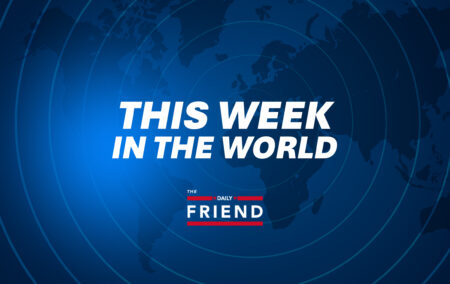This Week in the World sheds light on events and personalities around the globe that may not have made the headlines
China
An article in the Financial Times this week claimed that China under Xi Jinping has effectively “throttled” its private sector. Since the Covid-19 pandemic, and the brutal lockdown that followed, China’s economy has performed significantly less well than in the decade previously.
In 2018 at the height of its start-up boom, China saw 51,302 start-ups opening in the country. This was significantly up from the 6,400 start-ups opened in 2008. This number has since crashed, with only 1,202 start-ups founded in 2023, and only 240 so far this year.
Hong Kong businessman Desmond Shum claimed in the article that the Chinese Communist Party “has throttled the private sector”.
Chinese provincial governors are increasingly being forced to turn to unproductive spending in order to meet the GDP growth targets set by the central government.
Faced with a rapidly ageing population, China is also raising its retirement age for the first time since 1978 in order to prevent labour shortages. Chinese officials say the age of retirement will rise between 3 to 5 years depending on the gender, and job, of the worker, with the retirement age for women moving from 50 to 55 and for most men from 60 to 63.
Russia-Ukraine
Russian forces began a counter-attack on Ukrainian positions in Kursk Oblast this week in an attempt to push the Ukrainian troops off Russian soil. The results of this operation are still unclear, with different sources claiming wildly different levels of success. Most of the Russian territory in Kursk Oblast captured by Ukraine remains in Ukrainian hands.
Russian progress in the east of the country seems to have significantly slowed as Ukraine sent reinforcements into Donetsk Oblast.
This video from X shows a montage of the expanding field of drone vs drone warfare. In the video Ukrainian drones are shown hitting larger Russian drones in mid-air. Both sides have been extensively developing their anti-drone capabilities. New strategies, from electronic warfare to anti-drone drones, and even guns and sticks have been used by both sides to try and defend against the ever-present drones.
Also significant is the role of technology in the treatment of injuries, as this post shows
United Kingdom
The British government has announced that it will be banning “junk food” advertising on television before 9pm, starting in October 2025. There will also be a total ban on paid-for online advertising for “junk food”.
This is described as part of efforts to combat childhood obesity. Orginally this legislation was proposed by the Conservative government but was not implemented. The new Labour government has decided to move forward with implementation.
The Labour government is also considering a ban on smoking in pub gardens and outdoor venues to reduce the burden on the National Health Service.
Somalia
The northernmost provinces of Somalia have since 1991 existed as a de-facto independent state, Somaliland, which is unrecognised globally. To the east, it borders another unrecognised semi-independent Somali state known as Puntland.
Since the early 2000s, the Somali government has been ravaged by intercine warfare and a Jihadist insurgency, whilr Somaliland and Puntland have been relatively peaceful by comparison.
In January of this year, Ethiopia signed a statement of intent with the government of Somaliland, promising to recognise the country’s independence at some point in the future in return for the rights to build a naval base in Somaliland and use it for access to the sea.
Ethiopia has been cut off from the sea since the independence of Eritrea in 1991.
The statement of intent spiked tensions with the federal government of Somalia, as Somaliland is still recognised internally and internationally as Somali territory. This week Somalia expelled Ethiopia’s ambassador and closed two of its consulates in protest.
According to Reuters, Somali President Hassan Sheikh Mohamud called the port deal illegal, having said in February that his country would “defend itself” if Ethiopia were to go ahead with it.
In August Egypt began supplying arms to Somalia and has promised to support Somalia against Ethiopia.
Also, this week Ethiopian troops, deployed in Somalia as part of efforts to battle Jihadists, captured a number of airports in Somalia’s Gedo region reportedly as part of efforts to prevent Egyptian troops landing at them.
The potential exists for a new regional war in a part of the world already destabilised by the brutal civil war in Sudan, and the famine developing in that country due to the war.
If you like what you have just read, support the Daily Friend


